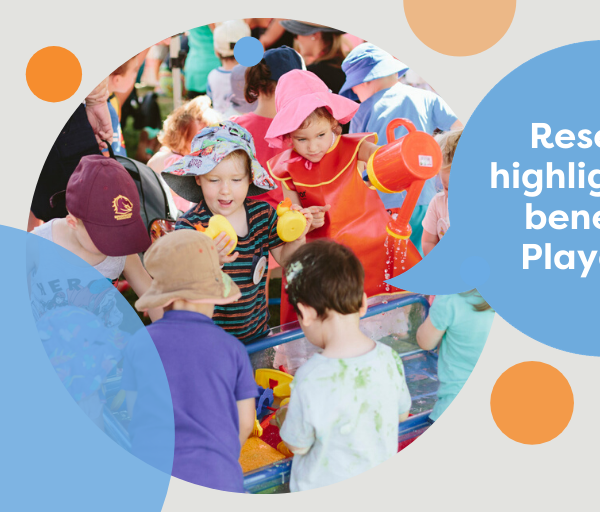Play2Learn keeps community connection going for Binjari and Rockhole communities
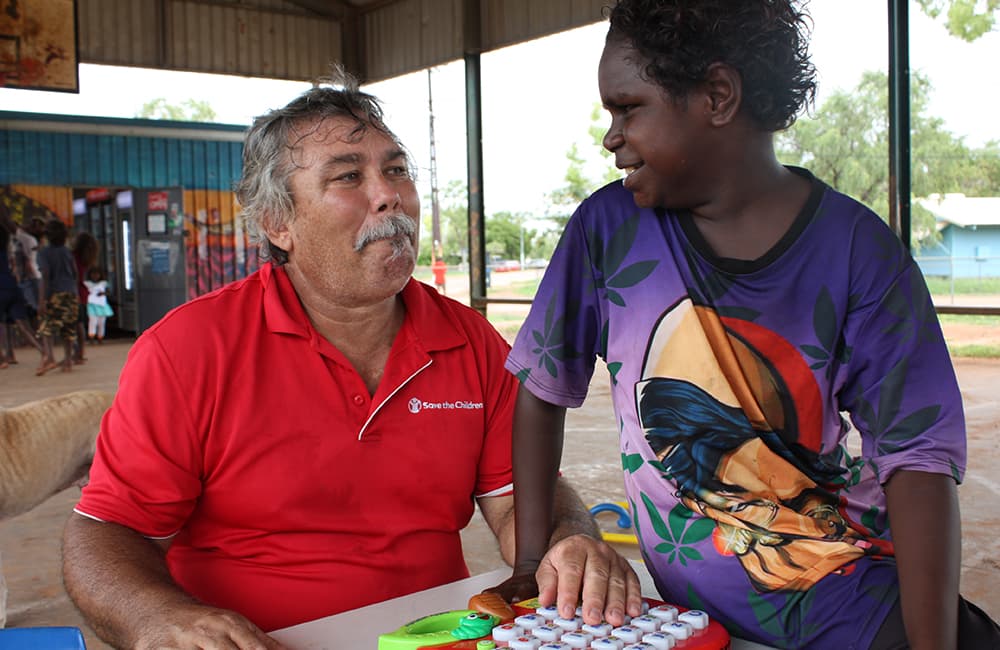
Despite their isolated location, for the remote communities of Binjari and Rockhole, located approximately 20 km from the township of Katherine in the Northern Territory, the COVID-19 lockdowns in 2020 had a strong visual presence – roadblocks that literally closed off their communities.
While the community closures were aimed at protecting local residents, whose compromised health conditions made them vulnerable to the coronavirus, these restrictions led to feelings of isolation and fear among residents, who regularly visit extended families as a normal part of their life.
Two early childhood educators, however, were able to shine a light into the moments of isolation and confusion. Allen Bower and Sarah Gold were the two early childhood educators assigned to continue Save the Children’s Play2Learn playgroups in Binjari and Rockhole during the community closures.
“Binjari and Rockhole went through quite a stressful time when the pandemic hit,” Ms Gold said.
“We received emails from the Binjari CEO and Rockhole’s governing body, Kalano Association, on behalf of the families, requesting us to continue visiting as they felt it would be beneficial for all members of their families,” she added.
Play2Learn brought happiness to the children through lockdown
Save the Children has been providing free Play2Learn playgroups to the local communities and to Katherine for well over a decade now, preparing local children for school and supporting parents with skills through the learning through play program.
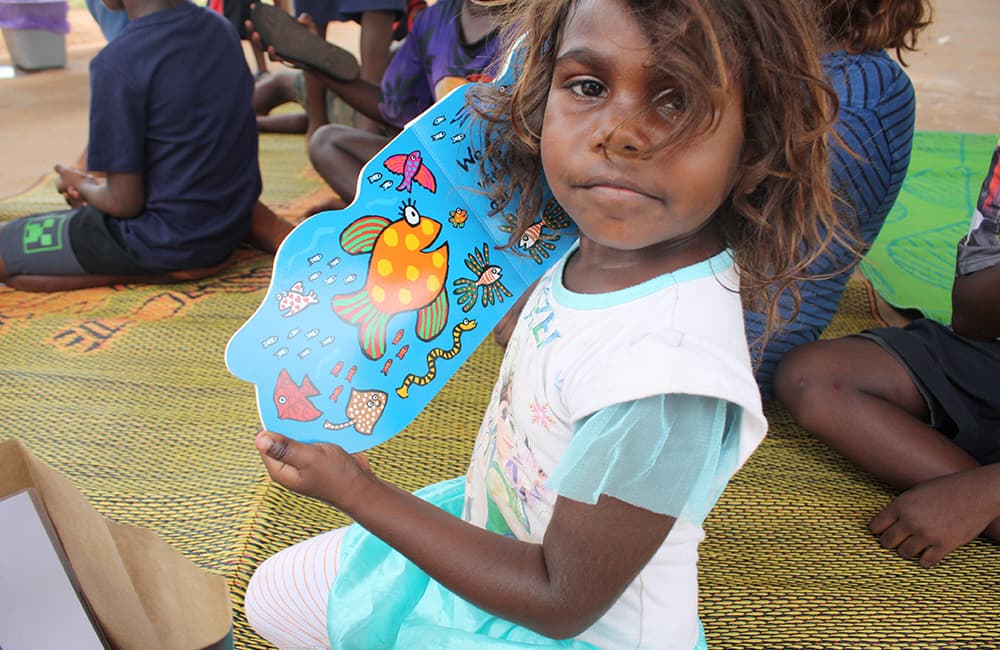
The playgroups also connect families to the wider community, encourage friendships, a sense of belonging and referral to other services that can look after their health, wellbeing and welfare. During lockdown, the playgroups took on a greater sense of importance to the families.
Having visibility into the lives of families during the challenging time through participation in playgroup meant that the facilitators were able to monitor the physical health, mental health and wellbeing of children and adults, as well as provide a much-needed distraction for the children with the continuation of regular learning sessions.
While playgroups in Katherine were able to move online, Play2Learn at Binjari and Rockhole had to maintain their face-to-face group delivery, due to unreliable internet connection, no personal laptops, and people having to rely on purchasing extra credit for mobile phones from tight budgets.
Children read books, some of which were written in Kriolby local ‘Binjari Buk Mob’ women with support from the Indigenous Literacy Foundation.
Reinforcing handwashing
The playgroups also provided an opportunity to reinforce existing handwashing techniques. Learning handwashing, Ms Gold said.
Learning handwashing as part of a healthy life skill was something which the children then took back and continued at home.
“We have coupled this with dental health care education providing toothbrushes and toothpaste and a dedicated time to clean teeth at the end of our provided meals time thanks to items donated by corporate partners, and blowing noses in line with the government health team education drives,” she added.
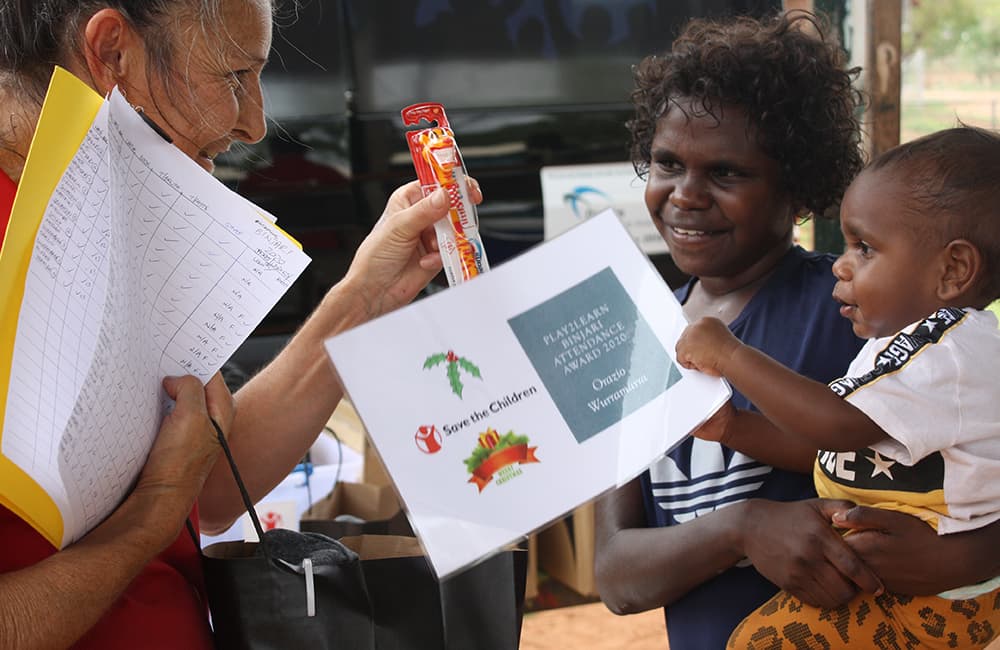
“There has been a notable decrease in skin, nose, ear, and eye disorders in families since the improved personal hygiene regime has been implemented across both communities.”
School-aged children shared their knowledge with little ones
The playgroups also adapted to accommodate older children who were missing their normal school routine due to the community closures. This helped minimise complete disruption to their learning. Many of the children had been attendees at Play2Learn prior to commencing school.
“Older children modelled and talked about school routines with the younger children, leading to role play and new games.”
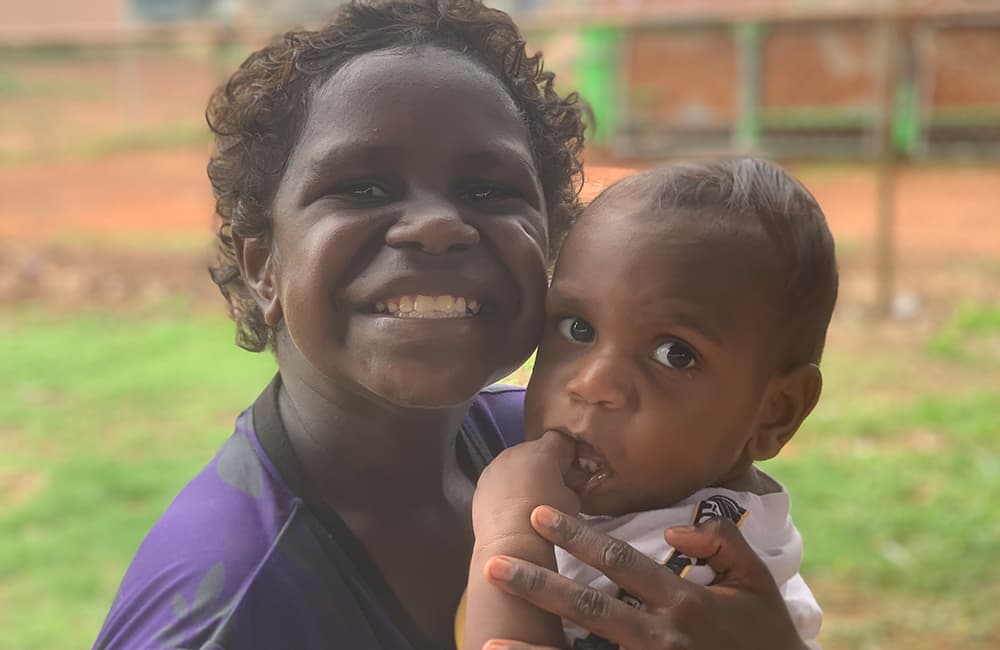
“We encouraged them to reinforce their own learning and memory by helping others through demonstration and sharing of learned skills, sharing resources, playing sports, managing emotions, showing respect and care, and especially awareness of health and wellbeing,” Ms Gold said.
Involvement of fathers
Mr Bower, who himself grew up locally, helped the men engage in Play2Learn activities that are traditionally seen as something the women do with the children.
With the travel restrictions and pausing of the federally funded Community Development Program that engaged the men, dads and other adult male family members started to come to the playgroup, encouraged by the children who wanted to show off what they do at Play2Learn.
The men offered input and suggestions, and they often continued the group’s learning when we left for the day, Ms Gold said.
For example, the men took the children fishing and bushwalking, as children expressed the wish to learn more of their own cultural history and environment.
To learn more about Play2Learn please see here. All images used in this story are the work of Emily Dienhoff / Save the Children.
Popular

Provider
Workforce
Quality
Fair Work Commission confirms forced resignation grounds in case involving early learning provider
2025-12-08 07:30:23
by Fiona Alston

Workforce
Quality
Practice
Provider
Research
How one teacher is using Little J & Big Cuz to build empathy, understanding and confidence in First Nations learning
2025-12-08 07:15:19
by Fiona Alston

Workforce
Policy
Quality
Provider
Funding agreement reached on preschools
2025-12-09 08:46:06
by Fiona Alston
















